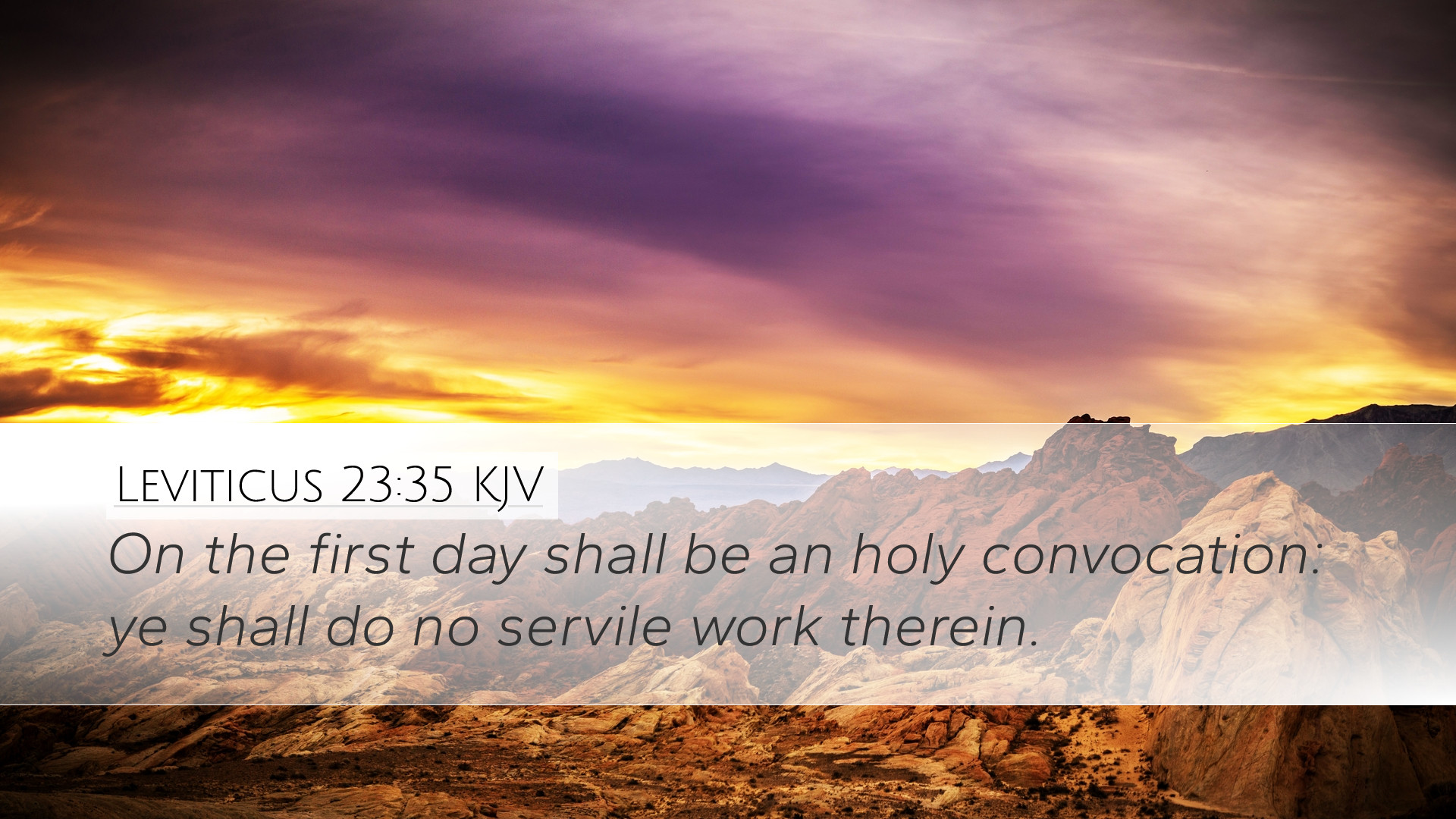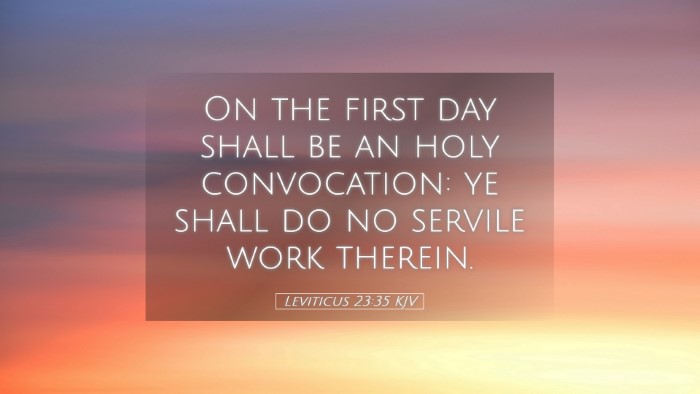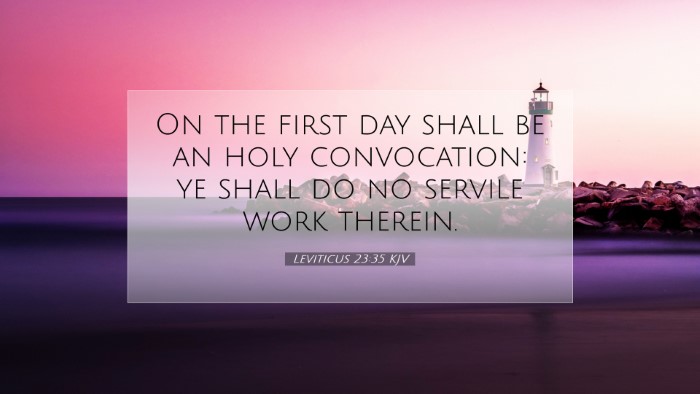Commentary on Leviticus 23:35
Verse Reference: Leviticus 23:35 - "On the first day shall be a holy convocation: ye shall do no servile work therein."
Introduction
This verse is part of the Mosaic Law concerning the Feast of Tabernacles, a significant festival in the Hebrew calendar. The specific focus of Leviticus 23:35 is on the first day of this feast, highlighting the sacred nature of this occasion, which symbolizes both remembrance and celebration of God’s provision and protection.
The Significance of Holy Convocation
Matthew Henry’s Commentary emphasizes the importance of a "holy convocation" as an assembly set apart for worship and reflection. The term “holy” denotes that this gathering is not merely a social event but a sacred assembly where the people come before God.
- The Purpose: This assembly is an opportunity for the congregation to express their gratitude and reverence to God.
- Unity in Worship: It fosters a sense of unity among God’s people, as they collectively acknowledge God’s faithfulness.
The Prohibition of Servile Work
The command to refrain from servile work on this day signifies a day of rest and devotion. Albert Barnes points out that this prohibition is not merely about ceasing labor but highlights the intention to dedicate this time to God.
- Rest as a Sacred Act: Resting on this day allows the individuals to focus on their relationship with God, free from the distractions of daily labor.
- Reflection and Worship: The emphasis is on reflection, worship, and connection with the divine, which is vital for spiritual growth.
Historical Context and Implications
Adam Clarke elaborates on the historical context, indicating that these practices were integral to Israelite identity and their covenant relationship with God. The command to keep this day holy links the act of worship with the remembrance of God’s deliverance and provision during their wilderness journey.
- Covenant Remembrance: This festival is a reminder of God’s faithfulness and sustenance, as Israel lived in temporary shelters to commemorate their journey.
- Modern Application: The principle of keeping a day sacred for worship and rest continues to be relevant, urging believers to prioritize their relationship with God amidst a busy life.
Theological Reflections
The themes of unity, rest, and worship inherent in Leviticus 23:35 resonate deeply with theological reflections on God’s character and His desire for fellowship with His people.
- God’s Desire for Relationship: The call for a holy convocation reflects God’s longing for His people to draw near and connect with Him.
- Importance of Holy Days: These holy days serve as checkpoints in the believer’s life, reaffirming faith and commitment to God’s covenant.
Practical Applications for Today
For pastors, students, theologians, and scholars, Leviticus 23:35 serves as a rich source of study and application in contemporary Christian life.
- Incorporating Holy Rest: It challenges believers to integrate times of rest and worship into their lives, fostering spiritual renewal.
- Promoting Community Worship: It calls for the church to cultivate environments that prioritize collective worship, mirroring the holy convocation.
- Celebrating God’s Provision: Encouraging gratitude and reflection on God’s blessings should be a routine of Christian life, similar to the feasts instituted by God.
Conclusion
Leviticus 23:35 offers profound insights into the nature of worship and community. By analyzing this verse through the lenses of respected commentators such as Matthew Henry, Albert Barnes, and Adam Clarke, we recognize the enduring relevance of making space for God in our lives through holy gatherings and sacred rest. As they practiced in ancient Israel, so too are we called to honor God through dedicated times of worship, reflection, and thanksgiving for His ongoing faithfulness.


